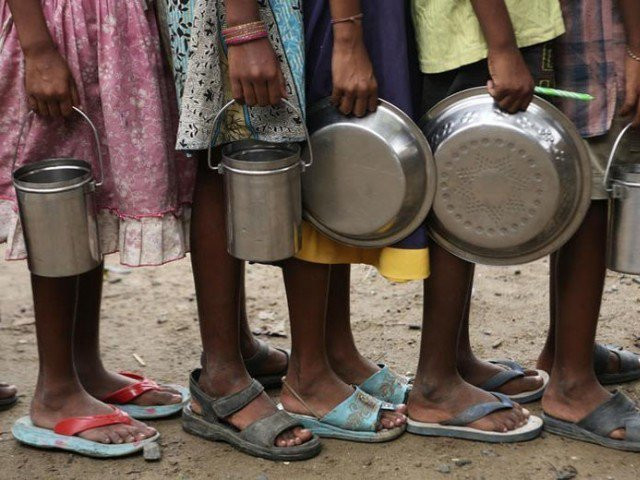‘Private sector can fight poverty through community development’
Former Sindh CPLC chief says poor service delivery by govt has created a trust deficit with public

PHOTO: REUTERS
This was suggested by the former chief of Sindh’s Citizen Police Liaison Committee (CPLC) and philanthropist Ahmed Chinoy during a talk on the ‘Extended Role of Private Sector in Community Development’.
The talk had been organised by the Sustainable Development Policy Institute (SDPI) in Islamabad on Friday.
Chinoy said that no government, particularly in the developing world, can achieve its development objectives without the participation and support from its community.
Community development through philanthropy, charity or corporate social responsibility by the private sector, can go a long way to help the government in the social sector, he said.
“When our Memon community migrated from India, they resolved a majority of their issues by establishing their own community-led and community-owned development models,” said Chinoy adding that through unity, commitment, trust and enthusiasm, the different community groups were able to establish model schools and health centres, everyone was treated equally without any discrimination of creed, class or religion.
Moreover, community development groups were taking care of many other essential services and initiatives for the poor such as financing marriages (Shadi-Madad), funerals, and basic housing.
He lamented that the government failed to provide the necessary facilities to the public, particularly the underprivileged communities, services in critical sectors of health, education and social. Ultimately, this pushed people to come forward and resolve their issues on their own.
“Lack of trust in the government is the major reason that the private sector is doing their own community development work, which needs to be bridged through collective efforts to tackle societal challenges,” he added.
Describing the poor state of public service delivery, Chinoy said that in a sprawling megalopolis such as Karachi with a population of almost 20 million, there are just 3,882 government schools in 938 premises and only four general hospitals.
These government schools, he said, have the capacity to enrol 500,000 students but current enrollment levels hover at around 235,000 students.
“This shows the level of governance, capacity and public service delivery by the government,” he lamented.
On performance and importance of community development initiatives led by the private sector in Karachi, Chinoy said that his community had adopted two schools in each of the 18 towns of Karachi and transformed them into model schools.
Explaining how the transformation took place, he said that they trained the teachers, developed the curriculum and incentivised students.
As a result, enrollments rose four times.
In the health sector, he said that his community has established more than 50 health facilities around Karachi including the Indus Hospital.
This hospital has now been developed as a network of 14 hospitals around the country which are providing health services without discrimination.
While clarifying allegations of terror financing under the garb of philanthropy or charity, Chinoy said that there is not a single penny that goes into terror financing as their community’s development model is transparent and includes a mechanism for accountability which can be monitored or audited.
To a question on regulating philanthropy, Chinoy said that the government cannot and should not regulate philanthropic work. He explained that there is a large trust deficit with the government and government checks could be detrimental.
Instead, he suggested that the government partner with communities and allow community participation for inclusive decision making for the well-being of society.
He urged the need for creating awareness about community development models in the country, especially in rural areas, to help resolve the societal issues.
SDPI Senior Research Fellow Dr Shafqat Munir said that charity or philanthropy should not be regulated by laws otherwise it will undermine the spirit and enthusiasm of the public at large.
He said that corporate social responsibility (CSR) is a social impact investment and large businesses should include CSR as part of their business strategy to help improve their businesses as well. Considering the potential and volume, the role of the private sector is very significant for community development, he added.
Published in The Express Tribune, January 18th, 2020.


1724319076-0/Untitled-design-(5)1724319076-0-208x130.webp)
















COMMENTS
Comments are moderated and generally will be posted if they are on-topic and not abusive.
For more information, please see our Comments FAQ